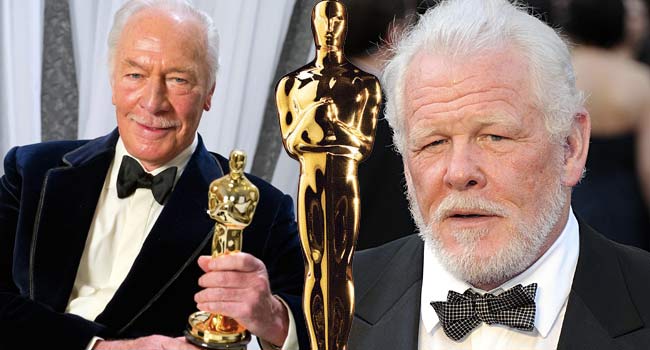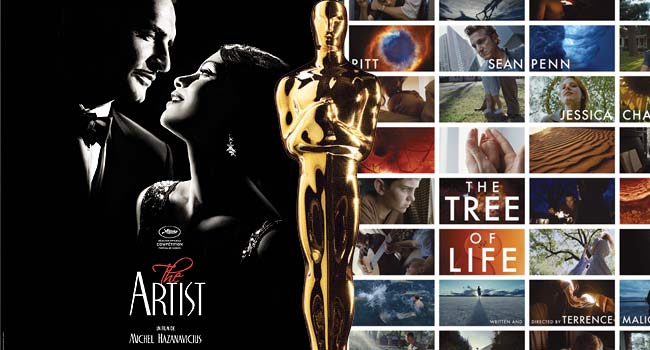Oscar Winners Revisited: Who Should’ve Won in 2012

In honor of Oscar season being fully upon us, Oscar Winners Revisited is a new column that combines three of our favorite things: arguing about the Oscars, nostalgia, and passing judgment on others. These features hope to re-evaluate past Academy Awards results and see how well the winners and nominees held up versus the choices Way Too Indie Staff members would make today. We’ll be sticking to the big six categories: Best Picture, Director, Actor, Actress, Supporting Actor, and Supporting Actress. Make sure to visit yesterday’s installment on the 2011 awards, and check back on Way Too Indie tomorrow for another year’s batch of Academy Award winners, revisited.
Best Supporting Actress
Who Won – Octavia Spencer, The Help
Who Should’ve Won – Berenice Bejo, The Artist

The Artist cleaned up most of the major categories in 2012, earning wins for Best Director, Best Picture, and Best Actor. But I was bummed when Berenice Bejo’s dashing performance in the film failed to capture a win on Oscar night, falling to Octavia Spencer in The Help. Even to call Bejo a supporting actress in the silent film era throwback is kind of a stretch, she spends a great deal of time on-screen with Jean Dujardin. Her charming performance as the young dancer and love interest was done without saying a word. It’s hard to deny Octavia Spencer’s captivating performance, but part of me just wanted this to end in a tie between these two great actresses. [Dustin]
Best Supporting Actor
Who Won – Christopher Plummer, Beginners
Who Should’ve Won – Nick Nolte, Warrior

I’m tempted to award the newcomer Jonah Hill, the youngest nominee by more than 20 years, for his surprisingly textured work in Moneyball. Considering the combined age of the other four nominees totalled more than 250 years, it was unlikely the Apatow-bred actor was going to break through. Beyond Hill, 3-time Oscar nominee Nick Nolte may have delivered the most heart-wrenching performance in this group of actors. Christopher Plummer does solid work in Beginners, but likely garnered a lot of support due to the nature of his role and Plummer’s long career (at 82, Plummer became the oldest competitive Oscar winner ever). Nolte’s Warrior performance came as the sole nomination for a mostly overlooked but beloved smaller project (much like Plummer for Beginners), but his gravel-voiced vulnerability gives his role an emotional anchor. Both veteran actors are deserving of acknowledgement, but the more affecting performance scene to scene for me was Nolte’s. [Zach]
Best Actress
Who Won – Meryl Streep, The Iron Lady
Who Should’ve Won – Viola Davis, The Help

Surprise, surprise Meryl Streep wins again. Okay, so maybe she doesn’t win all the time, but Streep has racked up a whooping 19 Oscar nominations. That’s enough nominations to make one wonder if she’s getting noms now solely based on her name, not her performances. Her portrayal of Margaret Thatcher in The Iron Lady wasn’t particularly impressive. In fact, most people that year expected Viola Davis to win since she won at the Screen Actors Guild. And rightfully so. Davis dominated the screen and our hearts when she’s forced to bite her tongue as a black maid serving her white employer. If there was one thing to take away from the 2012 Oscars, it’s that you should never count Streep out when it comes Oscar night. [Dustin]
Best Actor
Who Won – Jean Dujardin, The Artist
Who Should’ve Won – Brad Pitt, Moneyball

2012 lacked the type of standout male lead that drives most Oscars races. With all due respect to Demián Bichir whose surprise nomination came in a film not many had seen (including myself, although the role garnered acclaim from those who did), his inclusion feels like a reward in and of itself. Dujardin’s malleable performance in the lead of the Best Picture winning “silent” film The Artist certainly has a novelty the other nominated performances lack; however, as strong as Dujardin was in the movie, there are inherent limitations to the role. Brad Pitt’s role in Moneyball is by far the more conventional of these two performances. Yet Pitt is delivering a performance that exemplifies the qualities that has made him one of Hollywood’s biggest stars for decades. The ease with which he delivers his lines, the disaffected persona he portrays while still communicating a committed interest in his actions, and the subtlety of the role in comparison to Pitt’s other not-so-subtle standout performances make the part of Billy Beane a highlight of Mr. Jolie’s acting career. He’s no runaway winner, but Pitt is an appealing alternative to Dujardin here. [Zach]
Best Director
Who Won – Michel Hazanavicius, The Artist
Who Should’ve Won – Martin Scorsese, Hugo

I don’t give Hugo the win for Best Picture and I don’t usually like to give splits in Director/Picture (though in 2013 I would give Cuaron Best Director and The Wolf of Wall Street Best Picture), but Martin Scorsese really deserved it this year. The 3D family film was in fact a much more deserving effort than his long-awaited win for The Departed five years earlier. Hugo saw the filmmaker working completely out of his comfort zone and he absolutely nails it, I’d be hard pressed to think of a more inspiring and heartfelt family film to be released this decade. His use of 3D is also incredible, the best use of the technique I’ve seen thus far, as if Scorsese had turned himself into a sort of modern day version of Méliès (sorry Terry Gilliam). Marty really knocked it out of the park on this one. [Ryan]
Best Picture
Who Won – The Artist
Who Should’ve Won – The Tree of Life

Other than Drive, The Tree of Life was easily my favorite film of 2011 it was one of the most beautiful, poetic, and awe-filled experiences one could have with a film so far this century. A philosophical and emotional epic that sees abstract filmmaker Terrence Malick operating on his most breathtaking canvas yet with the help of God’s gift to cinematography, Emmanuel Lubezki. It’s his most powerful film in a small, but nonetheless outstanding filmography (though Badlands will probably always be my favorite). It’s kind of incredible the Palme d’Or-winning film was even nominated at all (the expanded field helped I’m sure) and it definitely feels like one of those films where the voting body was saying “the nomination is your reward, but you have no chance.” Out of the other nominees only Hugo really comes close to The Tree of Life, though it seems unlikely Malick’s masterpiece ever would have taken home the top prize when competing with the Academy’s continually frustrating choices. The Tree of Life will stand the test of time though which is far more important and telling of a film’s impact. [Ryan]
